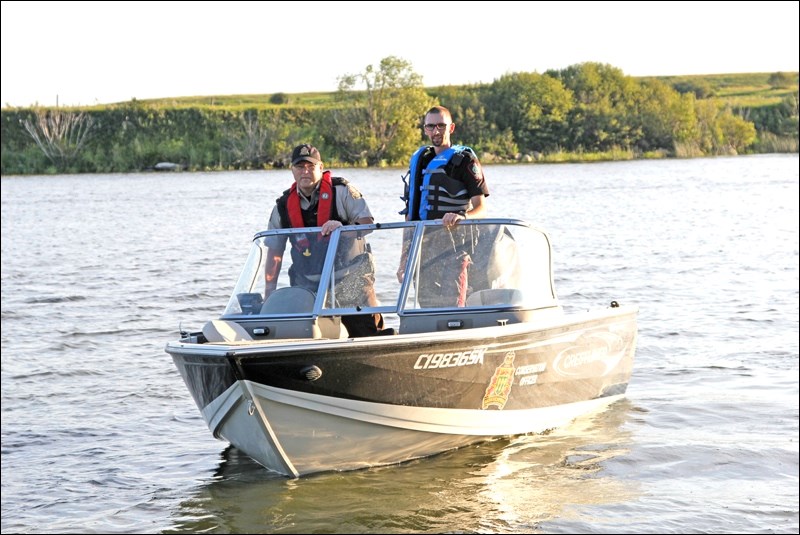Summer is half over and hopefully you have had a chance to get out and enjoy some holidays. Our family did some camping and we are looking forward to another trip to Greenwater Lake Provincial Park, located southeast of Melfort. We have been “southern campers,” so a switch from the leaves to pine and spruce needles will be a nice change.
This summer I have been busy in the southeast doing boat patrols. It is surprising to see the number of people who still haven’t gotten the message about boating and alcohol. We have issued quite a few tickets for unlawfully having, or drinking, liquor in a boat, including pontoon boats.
Unfortunately, people seem to think drinking in a boat is perfectly normal, safe and legal, but it is not.
People really had their eyes opened when we brought out roadside screening devices to check the impairment of boat operators who may have consumed alcohol. Remember, you face the same consequences for operating a boat while impaired as you would if you were caught driving your car while impaired.
This means we still have lots of work to do with public education and enforcement. In the southeast, and other areas of the province, conservation officers will continue to work with the RCMP to patrol lakes, looking for impaired boaters and liquor while doing our normal fisheries work.
Summer is also a busy time for conservation officers in Saskatchewan in dealing with black bears and some of the issues that they cause. Many problems can be avoided if people take measures to ensure they are not attracting bears into communities and campgrounds.
My wife is a bit worried with our trip to Greenwater, but I assured her that everything will be fine as I can outrun her and go for help. For some reason she does not see the humour in that, and her response is that I will be the bear’s target as I am a larger meal and would feed more bears.
There have been a few close encounters with black bears this summer. I just can’t say this enough, but the best way not to encounter a bear is to keep your campsite clean of food and garbage. At the end of the meal, put the garbage in the park bins, so it’s away from your campsite.
Remember, for the most part, bears are afraid of us and may only be curious, which can cause a close encounter.
If you happen to come across a bear, try to make a wide detour around the bear. Please, put your phone away and avoid any desire to take a selfie with you and the bear.
Trying to get closer to take that perfect photo could get you in a world of trouble.
Remember, do not take your eyes off the bear, but try not to make direct eye contact. Pick up your kids and dog if you have them with you and back away slowly.
In some cases, bears may pop their jaws or snort, and lunge or bluff charge showing aggression. If you have bear spray, now may be a good time to get it ready.
If the bear starts acting aggressively, look it straight in the eyes and let it know you will fight if attacked. Shout! Make yourself look as big as possible. Stamp your feet and take a step or two toward the bear.
Threaten the bear with whatever is handy (stick, pole, bear spray). The more the bear persists, the more aggressive your response should be.
Remember, don’t run as this will trigger its natural instinct to chase and attack. There is no way you are going to outrun a bear, so do not try.
If attacked, fight with everything you have. Target the face, eyes, and snout.
Finally, you should never feed or approach a bear. Generally, bears are attracted by food and if they cannot find food they will often leave the area. Bears that have been fed lose their natural fear for humans. When bears start to associate food with humans, they may damage property and become dangerous.
Anyone who finds themselves in a potentially dangerous situation with a bear should contact their local Ministry of Environment office or call Saskatchewan’s 24-hour TIP line at-1-800-667-7561. SaskTel cell phone subscribers can also reach the TIP line by dialing #5555.
With fall on the horizon, I am going to start gearing up for hunting season in future columns.
Until next time, be aware in bear country.
— Ministry of Environment conservation officer Lindsey Leko has spent more than 26 years as a conservation officer in Saskatchewan. If you have questions, please contact lindsey.leko@gov.sk.ca.



